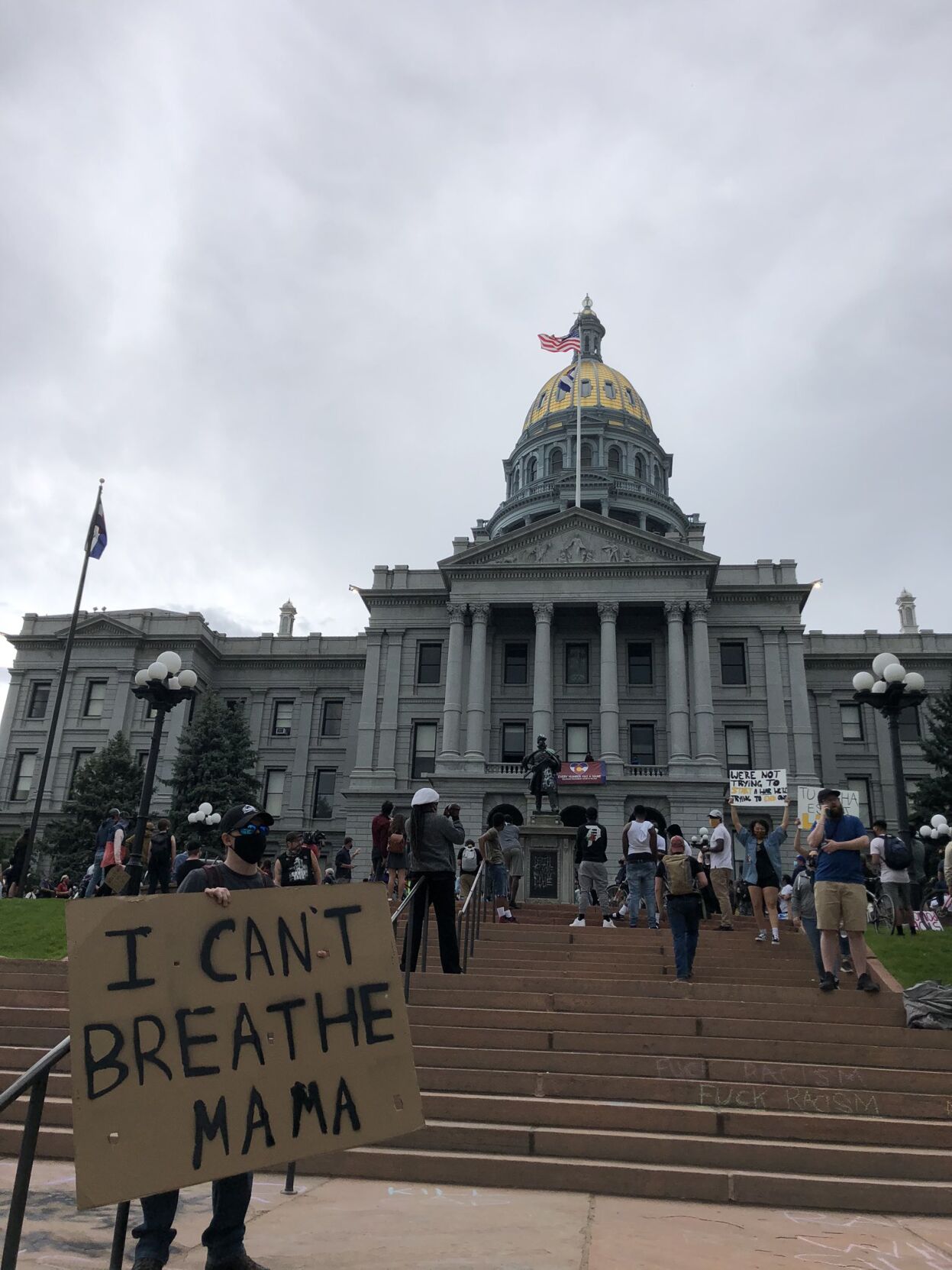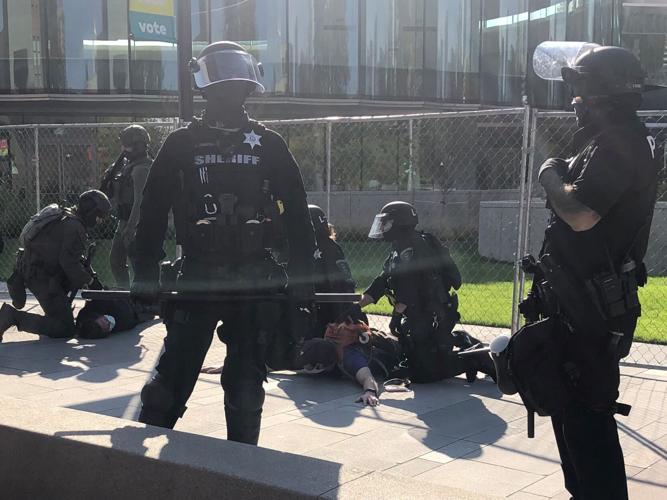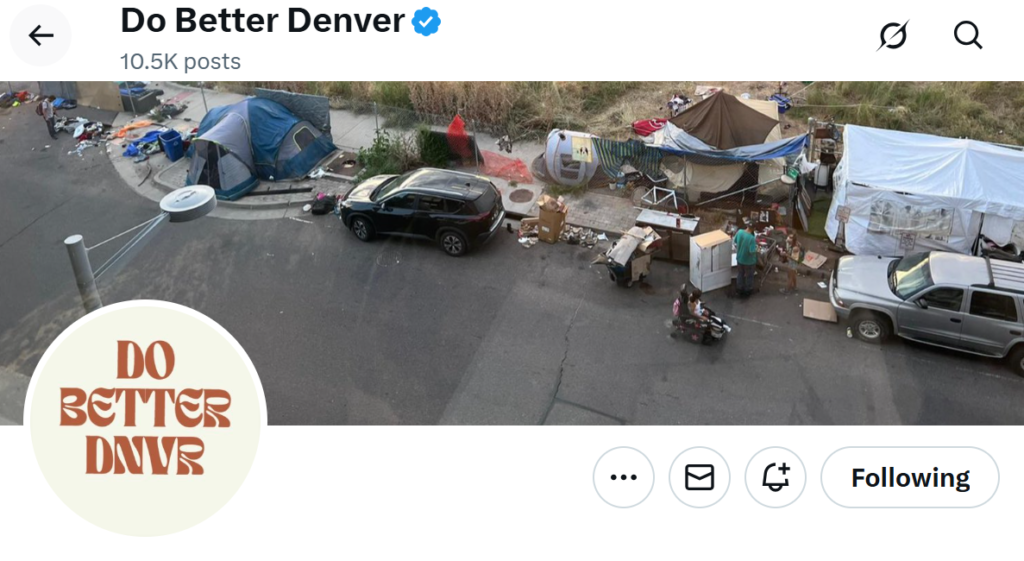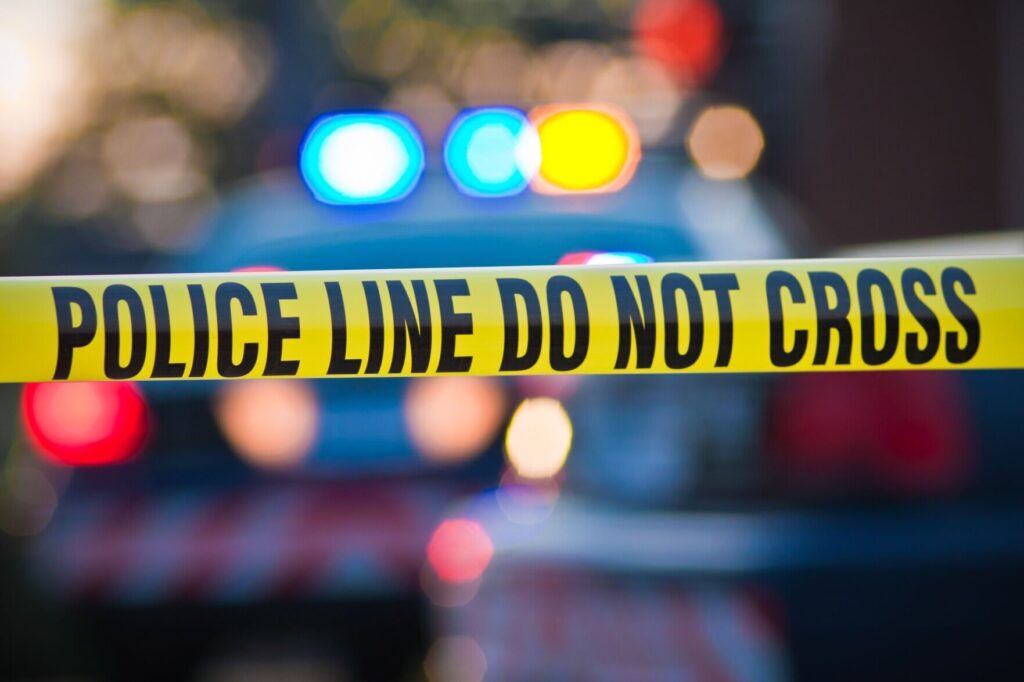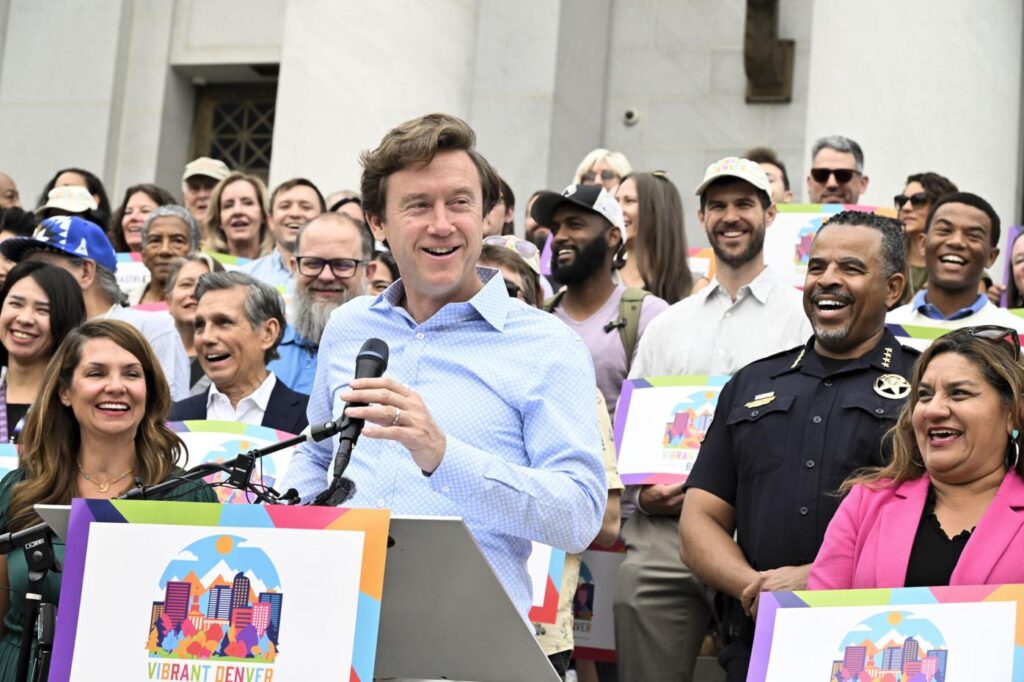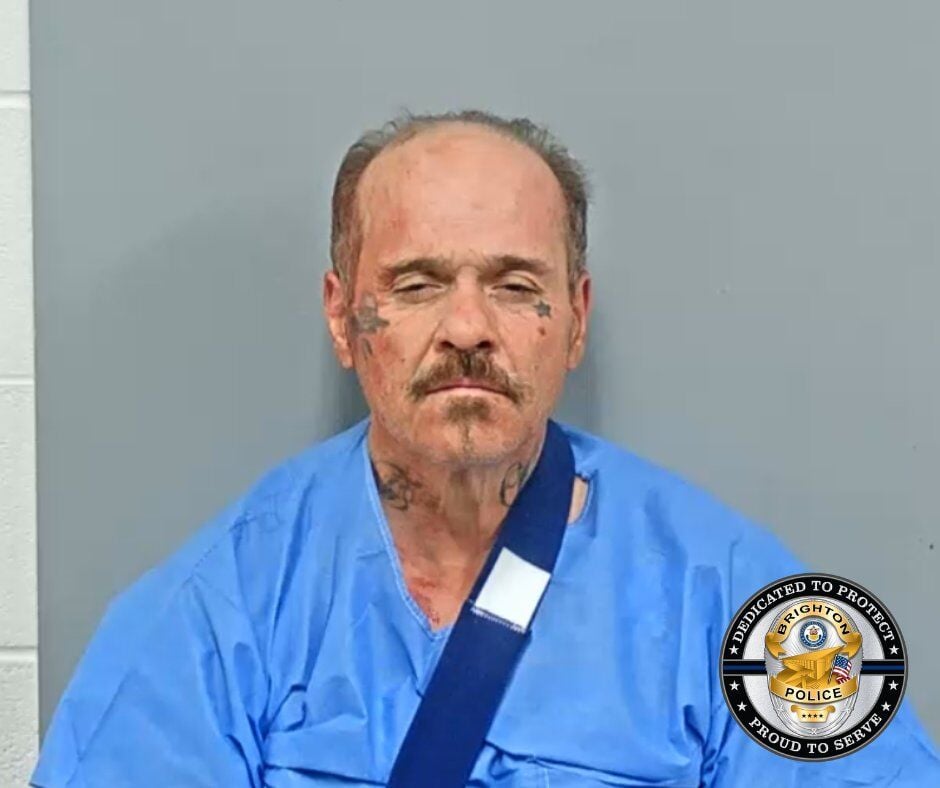Year in Review: 2020 through the lens of criminal justice and public safety
Disruption to courts caused by the COVID-19 pandemic and protests against police brutality sparked by the death of George Floyd made 2020 an eventful year for public safety and criminal justice. Here’s a look back at developments in policing and some high-profile trials.
January
Indictment details emerge for a woman charged with killing her 7-year-old daughter and suspected of faking her multitude of serious health conditions pleads not guilty. In December, Kelly Renee Turner pleads not guilty.
The 2017 death of Kelly Renee Turner’s daughter, Olivia Gant, was originally attributed to intestinal failure. Turner also publicly claimed Olivia suffered from a host of other serious medical conditions, including seizures, an inoperable tumor pressing on her brain and autism.
Turner solicited donations for Olivia’s care, and the little girl’s supposed illnesses grabbed hearts and headlines. Olivia got to participate in a “bucket list” of activities, including ride-alongs with police and firefighters.
But according to reporting by Denver Gazette partner 9News, a grand jury indictment showed doctors didn’t believe Olivia was terminally ill, but Turner eventually persuaded one doctor to sign a “do not resuscitate” order and withdrew all Olivia’s medical care, including a feeding tube.
Turner was charged in October 2019 with two counts of first-degree murder for Olivia’s death. She also faces nearly a dozen other charges, including child abuse for endangering another of her daughters and theft for defrauding Medicaid and HealthFirst Colorado of more than half a million dollars.
Turner appeared in court Dec. 16 for her arraignment and pled not guilty. Her trial is set to start in May.
Kelly Turner pleads not guilty in charges for death of 7-year-old daughter
March
Colorado’s chief justice issues the first of multiple orders delaying jury calls because of the COVID-19 pandemic.
Initially, Chief Justice Nathan Coats’ order included trials not facing imminent speedy trial deadlines. The order left much discretion to judicial districts for implementing the order, including interpretation of “imminent,” and reporting revealed a patchwork of approaches by chief judges around the state.
In the following weeks and months Coats issued subsequent orders delaying all jury calls. The state Supreme Court has made rule changes so that trials can be delayed without violating criminal defendants’ speedy trial rights, including an allowance for a mistrial to be declared if a jury can’t be safely assembled.
Courts currently face trial backlogs well into next year.
June
Gov. Jared Polis signs a sweeping law enforcement reform bill into law, overhauling aspects of policing from body camera use to qualified immunity.
Colorado’s legislature passed the bill, designated as SB20-217 as it made its way through, at lightning speed with bipartisan support after the video of George Floyd’s death at the hands of a Minneapolis police officer sparked fury and protests across the U.S.
Among the law’s requirements are expanded use of body-worn cameras for officers with penalties for noncompliance and new reporting requirements for use of force incidents, officer resignations because of policy violations, contacts with citizens and unannounced entries. The law also prohibits chokeholds by officers, limits the use of chemical agents and less-lethal projectiles during public demonstrations, and allows civil lawsuits against officers for violating a person’s state constitutional rights.
August
Denver City Councilmember Candi CdeBaca introduces a bill to replace the Denver Police Department with a “peace force.”
Denver’s District 9 councilmember drew ire from her colleagues on City Council and Mayor Michael Hancock when she introduced a measure for asking voters whether to abolish the Denver Police Department and replace it with a “peace force.” Much criticism focused on the fact that CdeBaca filed the bill directly on the council’s agenda less than a week before it came to the floor for a vote without it going through a committee process.
The only “yes” vote the bill received was CdeBaca’s own, with 11 councilmembers voting it down and Councilmember Chris Hinds declining to vote because of the little time to review the bill. However, CdeBaca has told the Denver Gazette she didn’t expect her fellow councilmembers to vote for the bill, but that she’s excited it has prompted ongoing conversations since then about reforming policing.
September
Denver City Council rejects a collective bargaining agreement between the police union and mayor’s office, and negotiations go to arbitration in October. The council in December begrudgingly approves the contract decided by the arbitrator, which mirrors the original agreement.
Denver City Council rejected by an 8-5 vote a two-year collective bargaining agreement reached by the police union and Mayor Michael Hancock’s office, which sent them back to the negotiating table and eventually to an arbitrator, who . After that, City Council was bound to approve the contract.
Council members who voted down the contract objected to a 2.77% pay increase for officers in 2022 because city employees have had to take furlough days because of the COVID-19 pandemic, and it’s also uncertain when the freeze on their pay raises will lift.
Some council members also raised questions about whether the contract was negotiated in good faith as required by Denver’s city charter, claiming exclusion of the council’s involvement in negotiations.
The police union and city went to arbitration when they didn’t reach a new agreement following City Council’s rejection of the contract. The arbitrator’s decision mirrored the parties’ original agreement, including two pay raises in 2022 totaling more than 3.5%, a freeze in pay and holiday premiums in 2021 and reduced city contributions to the retiree health trust.
Following the arbitrator’s decision, City Council approved the contract to avoid litigation against the city if members voted it down, though three members still voted against it. Members who begrudgingly gave the contract a “yes” vote didn’t mince words about their anger against the mayor’s office for what they called a failure to negotiate with City Council.
Denver City Council begrudgingly approves police raises, blames mayor for 'bad-faith' negotiations
October
It’s revealed a man working as private security for 9News who fatally shot a “patriot” rally attendee did not have a security guard license.
On Oct. 10 as people who attended opposing rallies in Civic Center Park dispersed, a handful got into verbal confrontations that turned physical and ended with Matthew Dolloff, who was working as security for 9News staff at the rallies, fatally shooting Lee Keltner as Keltner sprayed mace or pepper spray at him. Reporting revealed Dolloff did not hold a license to work as a private security guard.
Dolloff has been charged with second-degree murder for Keltner’s death. Denver District Court has set his preliminary hearing for January.
The two security companies that employed Dolloff and contracted him out to 9News, Isborn and Pinkerton, have received criminal citations because of municipal code violations for employing or directing Dolloff. Isborn agreed to give up its private security employer license in a settlement and cannot reapply for five years. However, the Department of Excise and Licenses rejected a proposed settlement with Pinkerton, and a hearing is set for February.
Police ID suspect in fatal Civic Center protest shooting
November
Judge declares a mistrial in Mark Redwine’s murder case.
Redwine has been charged with killing his 13-year-old son, Dylan, who disappeared in 2012 while visiting his father near Durango and whose remains were found in 2013. Chief Judge Jeffrey Wilson of the 6th Judicial District declared a mistrial at the request of Redwine’s defense team after attorneys — and then Wilson himself — showed possible COVID-19 symptoms. Redwine’s trial has been postponed several times since 2018.
District Attorney Christian Champagne made an allegation that one of Redwine’s attorneys was seen interacting with others and not following quarantine protocols, according to 9News.
December
Denver’s independent monitor releases a scathing report of his office’s investigation into the Denver Police Department’s responses to the spring and summer’s protests prompted by George Floyd’s death.
On Dec. 8, the Office of the Independent Monitor published a report of an investigation led by independent Monitor Nick Mitchell into how Denver Police responded in the early days of May and June’s protests against police violence.
The report found officers broke some DPD policies in their use of force and less-lethal weapons, and also found ambiguities in other department policies guiding police response to protests. An absence of officer rosters for the first four days of protests meant officer misconduct often happened anonymously during those first days.
The report included 16 recommendations for overhauling DPD policies for responding to protests, from requirements for record-keeping to banning the use of some less-lethal weapons such as rubber-ball grenades. The DPD agreed with each recommendation.
Police watchdog meets with city officials to discuss scathing report on DPD response to protests
The Colorado Supreme Court approves new rules for suppressing criminal cases.
In 2018, reporting by the Denver Post revealed thousands of criminal cases suppressed from the public without reason and with little oversight for when suppression is allowed.
New rules approved by the state’s high court make public a judge’s order to suppress a case, as well as requiring a hearing and specific reasons given to close a case file. A judge must also set a timeline for reopening a case.
However, meetings of a Supreme Court committee that proposed the new rules happened behind closed doors. The rules also don’t allow public access to suppression hearings.






